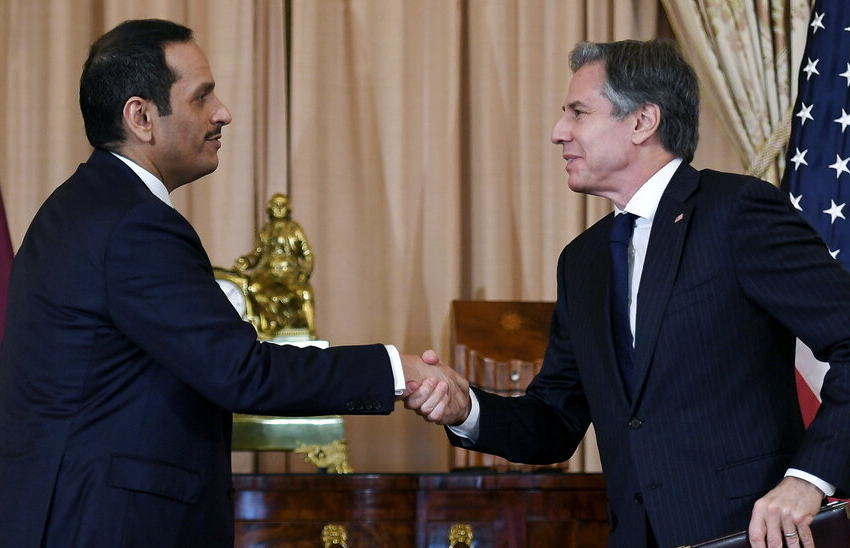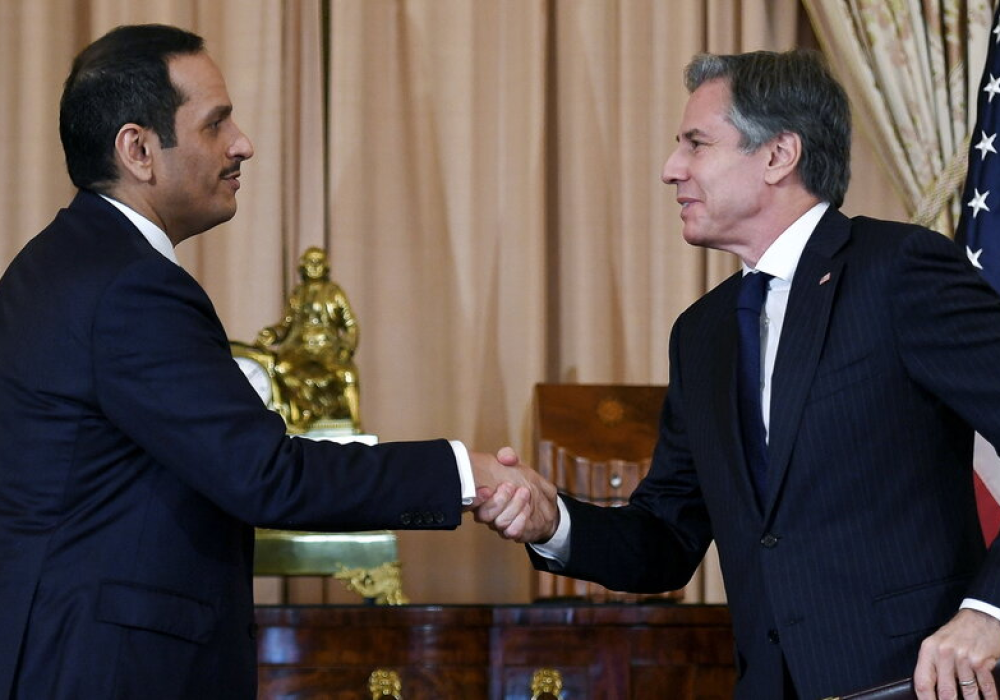WASHINGTON — The tiny Middle Eastern nation of Qatar will serve as a diplomatic proxy for the United States in Afghanistan, Secretary of State Antony J. Blinken said on Friday, representing American interests and helping to process visas for thousands of people who are looking to flee Taliban control.
Qatar for years has been a key go-between in the delicate relationship between the Taliban and the American invaders who unsuccessfully waged a 20-year war to eliminate it. The Persian Gulf nation has hosted diplomatic negotiations between the two sides to end the war and has received more than 60,000 people from Afghanistan after the Taliban seized power in August.
The United States does not consider the Taliban’s government as legitimate and closed the U.S. Embassy in Kabul, Afghanistan’s capital, during the frantic evacuation. Under the new agreement, Qatar will assume some American diplomatic duties in Afghanistan, including what Mr. Blinken described as consular services and keeping watch over the conditions and security of abandoned U.S. facilities.
The arrangement was announced on Friday as part of an annual strategic summit between the United States and Qatar, and “the events in Afghanistan over the past several months have reinforced that partnership, including on the most sensitive and urgent issues,” Mr. Blinken said.
American and Taliban officials continue to meet, including most recently in Pakistan on Thursday to discuss the humanitarian crisis that threatens to engulf Afghanistan as winter approaches. And last month, the State Department’s new envoy for Afghan policy, Thomas West, met with Taliban diplomats in Doha, the Qatari capital.
Foreign Minister Mohammed bin Abdulrahman al-Thani of Qatar said his nation would “continue to be an instrument of peace and stability in the region” and noted, as a top priority, the continuing discussions with the Taliban to ensure that humanitarian aid was delivered to needy Afghans.
“We believe that abandoning Afghanistan will be a big mistake, and ignoring it, because isolation has never been an answer, or solution, for any issue,” Mr. al-Thani said. “Engagement is the only way forward.”
Similar diplomatic proxy arrangements in which the United States asks a third party to serve as a so-called protecting power in an adversarial nation have led to secretive back-channel discussions on sensitive topics. Switzerland, for example, has served as a protecting power for U.S. interests in Iran, including acting as a go-between to secure the release of hostages.
It was not clear Friday if that is part of what Qatar would be doing for the United States in Kabul, given that American and Taliban diplomats are already on speaking terms.
The new agreement also formalizes a role that Qatar has been playing since August: allowing Afghans with special U.S. immigrant visas and other refugee permissions to live on an American military base outside Doha as they wait for security clearance to enter the United States. In recent weeks, Qatar’s government has begun requiring Afghans to possess a passport or other official travel documents to enter the country, in contrast to the tens of thousands of people who were evacuated in August, many of them without any identification.
Understand the Taliban Takeover in Afghanistan
Who are the Taliban? The Taliban arose in 1994 amid the turmoil that came after the withdrawal of Soviet forces from Afghanistan in 1989. They used brutal public punishments, including floggings, amputations and mass executions, to enforce their rules. Here’s more on their origin story and their record as rulers.
Who are the Taliban leaders? These are the top leaders of the Taliban, men who have spent years on the run, in hiding, in jail and dodging American drones. Little is known about them or how they plan to govern, including whether they will be as tolerant as they claim to be. One spokesman told The Times that the group wanted to forget its past, but that there would be some restrictions.
Mr. al-Thani called the passport requirements “mainly a security measure,” but said exceptions would be allowed.
Mr. Blinken said that 380 American citizens and 280 legal U.S. residents had been evacuated from Afghanistan since Sept. 1, after the American military completed its withdrawal. All remaining Americans in Afghanistan who have expressed interest in leaving have been contacted and given the opportunity to do so, he said.
He did not say how many of those people had declined a flight out, describing it as “an incredibly wrenching decision to leave, to give up everything.”










